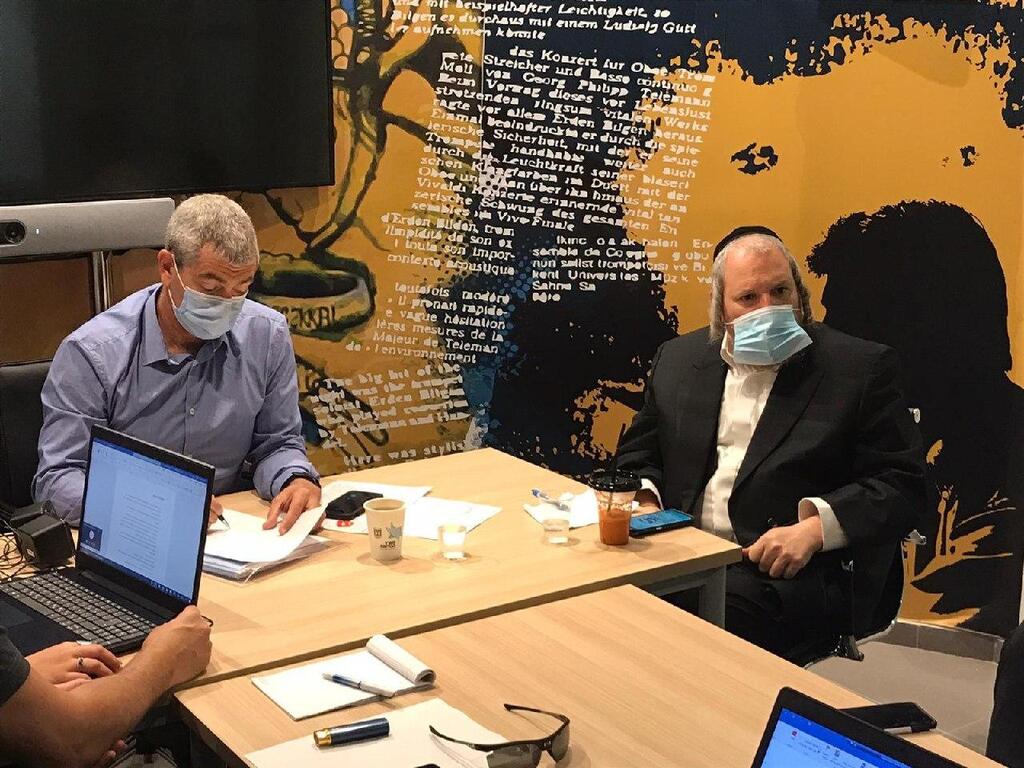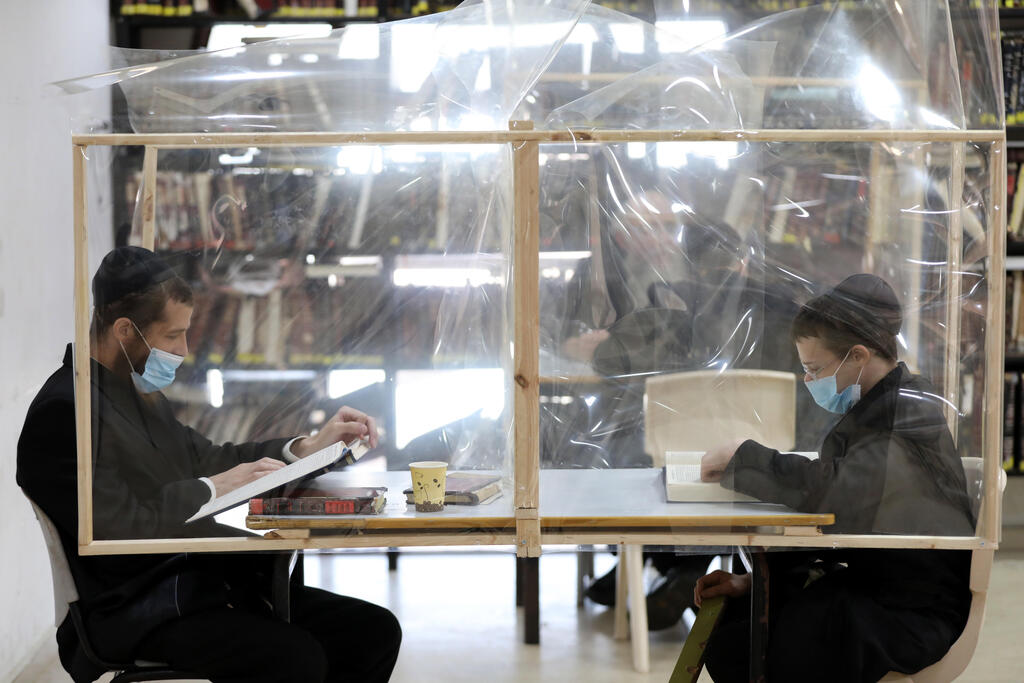Getting your Trinity Audio player ready...
A Health Ministry official overseeing the ultra-Orthodox sector, recommended on Thursday to reopen yeshivas as soon as next week despite the religious institutions becoming a major coronavirus hotspot during the pandemic.
The head of the ultra-Orthodox desk at Israel's program against coronavirus Magen Israel, Maj. Gen. (Res.) Roni Numa, reached an agreement with ultra-Orthodox leaders to reopen yeshivas despite the collapse of the "capsule outline", which mandated studies in religious institutions must take place in small groups and led to at least 20% of students to contract the pathogen.
According to the outline, which is very similar to the one that ended on Yom Kippur and was harshly criticised by the public, each study session will be divided into several separate student groups, and their friends will stay together in sterile capsules as voluntary isolation for almost two months until the holiday of Hanukkah in December.
Students will undergo coronavirus testing next Tuesday and those found negative for the virus will be allowed to join classes, which will most likely open on Wednesday or Thursday.
The outline includes yeshivas in red cities, which have high coronavirus infection rates, but only those designated as boarding schools. Other yeshivas will remain shuttered for now since authorities cannot ensure students will not carry the virus with them back home.
According to Numa, the new outline will include dozens of yeshivas that were not included in the previous one. He also stated that the government will be required to decide on enforcement measures in religious institutions not included in the outline and which are likely to operate without supervision.
2 View gallery


Head of the ultra-Orthodox desk at Israel's program against coronavirus Magen Israel, Maj. Gen. (Res.) Roni Numa (left) and Beitar Illit Maor Meir Rubinstein
(Photo: Beitar Illit Municipality)
After the end of the previous capsule outline on the evening of Yom Kippur, Ynet revealed that over 6,000 out of about 26,000 students have contracted the virus - almost one in four.
In addition, 16,000 students studied in institutions that were not included in the program and operated "under the radar" unhindered, without any supervision by the state, without testing and in the absence of enforcement of health guidelines. As a result, there was no available data on infections among students before returning to their homes after Yom Kippur.


